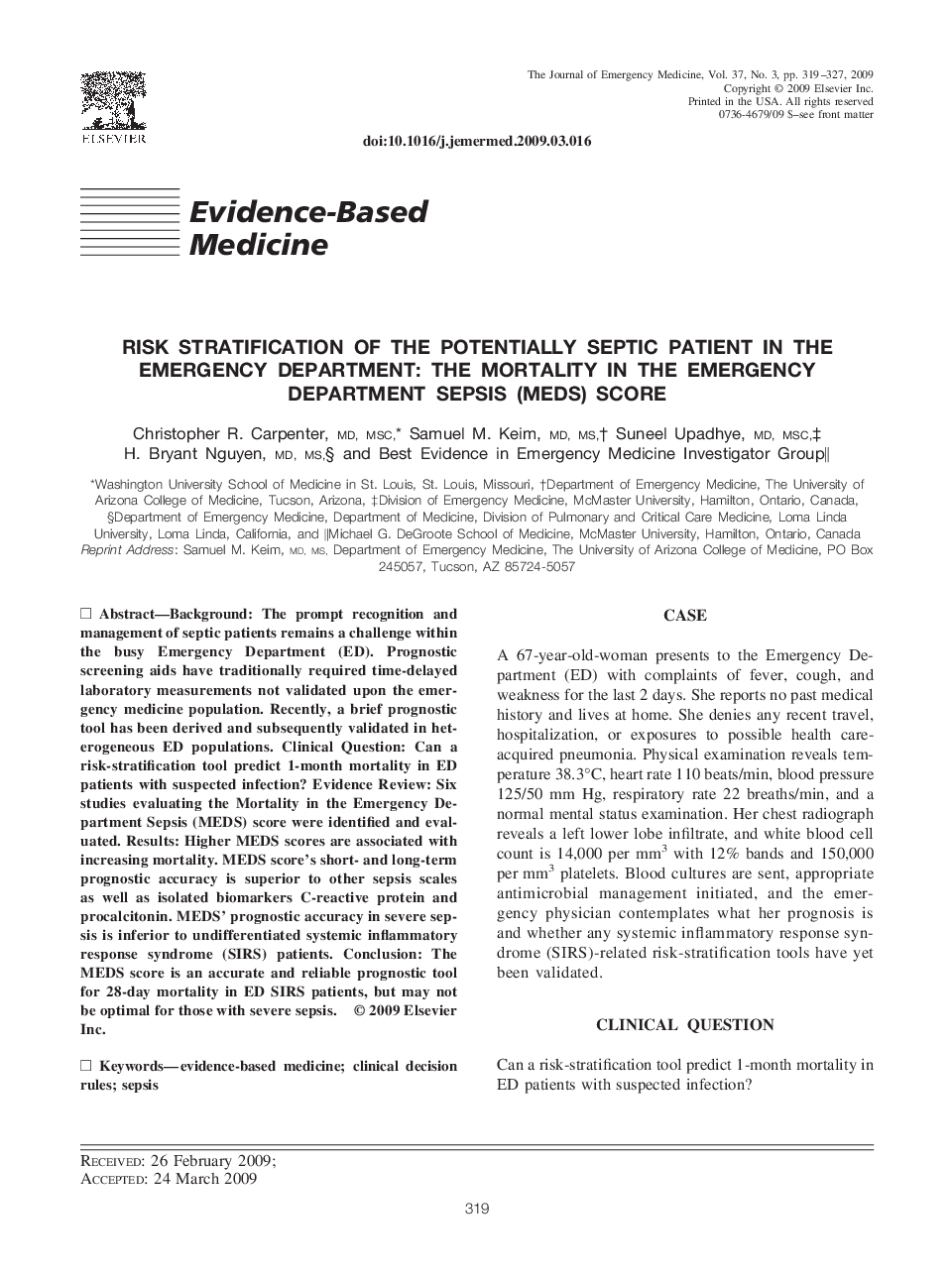| Article ID | Journal | Published Year | Pages | File Type |
|---|---|---|---|---|
| 3250370 | The Journal of Emergency Medicine | 2009 | 9 Pages |
Background: The prompt recognition and management of septic patients remains a challenge within the busy Emergency Department (ED). Prognostic screening aids have traditionally required time-delayed laboratory measurements not validated upon the emergency medicine population. Recently, a brief prognostic tool has been derived and subsequently validated in heterogeneous ED populations. Clinical Question: Can a risk-stratification tool predict 1-month mortality in ED patients with suspected infection? Evidence Review: Six studies evaluating the Mortality in the Emergency Department Sepsis (MEDS) score were identified and evaluated. Results: Higher MEDS scores are associated with increasing mortality. MEDS score's short- and long-term prognostic accuracy is superior to other sepsis scales as well as isolated biomarkers C-reactive protein and procalcitonin. MEDS' prognostic accuracy in severe sepsis is inferior to undifferentiated systemic inflammatory response syndrome (SIRS) patients. Conclusion: The MEDS score is an accurate and reliable prognostic tool for 28-day mortality in ED SIRS patients, but may not be optimal for those with severe sepsis.
